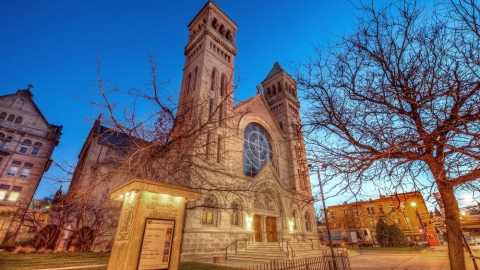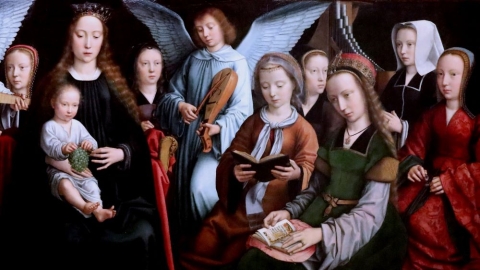Did the Mother of God Remain a Virgin After Childbirth?

Tradition distinguishes virginity in Our Lady before the birth, during the birth, and after the birth of Christ (ante partum, in partu, et post partum). The present question concerns the third aspect: virginity post partum. Did the Mother of Christ remain a virgin after the birth of her divine Son?
Some people have wanted to see in the “brethren of Christ” mentioned in St. John, other children of Mary. Modernist propaganda has taken up this argument. But other Gospel texts equally suggest this: as in St. Matthew, our Lord is called the first-born of Mary (Mt. 1:25).
It must be said that Holy Scripture often gives the name brethren to relatives who were not born of the same mother. In addition, the “brethren of Jesus” are jealous of him (Mk. 6:4); they give him advice (Jn. 7:1); they try to bring him home (Mk. 3:21). In the Eastern Church, this can only be understandable if they were older than him. But, Our Lord was the first born.
The term “first born” is said to be absolute, whether or not there are further births. It is a legal status. Thus, in 1930, the tomb of a young woman was discovered in Jerusalem, in a first-century Jewish cemetery, who died giving birth to her first born son.
But in the account of the Annunciation, the holy Virgin asks the angel: “How can this be, since I have known no man?” To know, in the biblical sense, means a carnal relationship. Mary’s objection can be explained only if she does not want to know a man in the future.
The Fathers of the Church
They repeat this truth over and over. St. Ephrem affirms that Mary was a virgin after childbirth. St. Zeno summed up the doctrine: “Mary was conceived without corruption, she begat by remaining a virgin, and she remained a virgin after the Nativity.” And St Ambrose fulminates: “Some have denied that she remained a virgin (after childbirth). We prefer to ignore such sacrilege.”
Pope Sirius, in turn, affirms: “We cannot deny that other sons must be refused to Mary, and it is with good reason that your holiness reproves that, from the same virginal womb, from which Christ was born according to the flesh, another child was born. The Lord Jesus would not have chosen to be born of a virgin, if he had judged her so incontinent, that she might have defiled the palace of the eternal king.”
It is de fide that the Mother of God remained a virgin post partum.
Reasons for suitability
They are enumerated by St. Thomas Aquinas in the Summa Theologiae (III, 28,3).
--It is suitable that the One who is the Only-Begotten and perfect Son of the Father, in eternity, be the only-begotten and perfect son of His Mother, in time.
--It would not have been appropriate for the virginal body of Mary, which had become the sanctuary of the Word through the operation of the Holy Ghost, to see a new conception in it. This amounts to saying that the virginal conception of Jesus was as an additional consecration of Our Lady to God, so that she is entirely devoted to the glory of God. To use marriage in these conditions would have been a violation. Mary is the model of religious life.
--It would not have been in conformity with the gratitude that Mary, having had the honor and grace of being the Mother of such a Son, would know a man and beget another son; likewise the holiness of Joseph respected the purity of Mary.
The divine maternity of the Mother of God is fully virginal. Virginity is property so characteristic of Mary that it has become one of her most common titles: the Virgin Mary.
Illustration : Flickr / Fr Lawrence Lew, O.P. (CC BY-NC-ND 2.0)





